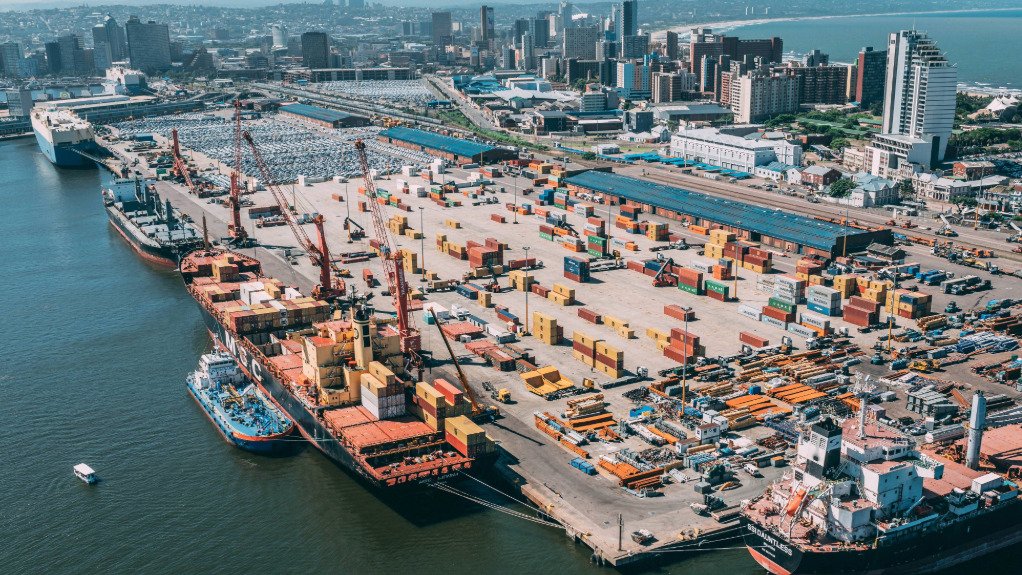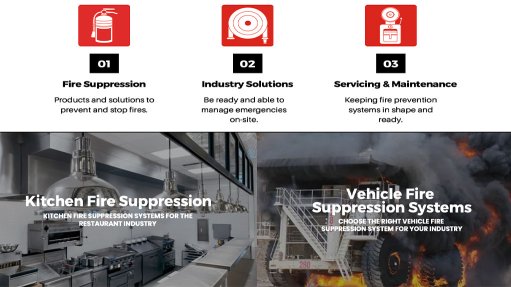African business leaders to sign manifesto on continental economic growth, investment
Leaders of several major international organisations are set to sign a manifesto on the advancement of African business on November 21, Italian management consulting firm and international think tank TEHA Africa CEO Pietro Mininni has announced.
The signing will take place on the second day of the TEHA CEO Dialogue on Southern Africa, organised by The European House – Ambrosetti in Johannesburg.
“The private sector is the driving force of Africa's economy, accounting for over 80% of production, around two-thirds of investments, while providing employment for about 90% of the working-age population,” he said on November 20.
According to Mininni, the manifesto outlines measures aimed at boosting growth and investment across the continent. He said that closing Africa’s infrastructure gap, including transport corridors, ports, power grids and logistics networks, could increase Africa’s GDP growth by up to 2% a year, noting that much of the existing infrastructure requires significant upgrading to meet growing industrial and trade demands.
Minnini also pointed out that Africa has substantial renewable energy resources, including solar, wind, gas reserves and geothermal potential. However, he said the continent needs to add at least 16 GW of new grid-connected generation capacity each year until 2050. This means, he said, that it also requires yearly investments of between $3.2-billion and $4.3-billion in transmission infrastructure to meet even basic growth targets.
Conflicts and instability continue to limit Africa’s economic potential, Mininni added.
“Countries experiencing intense armed conflict lose about 2.5% of GDP growth annually. Businesses can transform peace from a prerequisite into a competitive advantage for the continent,” he said.
Mininni noted that Africa’s capital markets have grown substantially, reaching a combined value of about $1.4-trillion, an increase of 500% over the past 20 years.
“Across the continent, thousands of startups and small- to medium-sized enterprises (SMEs) are scaling rapidly, with reasonable certainty that these will evolve into global champions in the near future. As these firms expand, they can help strengthen fiscal stability, attract long-term investments and reduce public debt pressures,” he said.
Mininni noted that the mobility of people was also central to unlocking economic potential. He said that while 26 countries had introduced visa assistance programmes and visa-free travel covers 28% of routes, expanding visa-free, visa-on-arrival and digital visa schemes was critical. He said simplified cross-border mobility would support trade, investment and the flow of talent, allowing businesses to operate more effectively across the continent.
SMEs were described as the backbone of Africa’s private sector, contributing up to 50% of GDP.
“Yet in sub-Saharan Africa alone, the formal SME financing gap is estimated at roughly $331-billion. Closing this gap is critical to enable SMEs to scale, invest in technology and boost productivity,” Mininni said.
He pointed out that Africa’s population is predominantly young, with more than 70% of people in sub-Saharan Africa under the age of 35. By 2075, one in three working-age people globally will be African. Mininni emphasised, therefore, that investments in education, health and skills development were necessary to convert this demographic advantage into sustained economic growth.
However, stable and transparent regulatory frameworks would be essential to attract and maintain investment, Mininni said, noting that these frameworks had been shown to increase foreign direct investment by up to 30%.
“Strengthening institutional capacity, harmonising standards, and ensuring efficient dispute resolution mechanisms will reduce risks and unlock private capital at scale. Governance is not only a prerequisite for development but a strategic advantage that drives fair competition and innovation across the continent,” he said.
Article Enquiry
Email Article
Save Article
Feedback
To advertise email advertising@creamermedia.co.za or click here
Press Office
Announcements
What's On
Subscribe to improve your user experience...
Option 1 (equivalent of R125 a month):
Receive a weekly copy of Creamer Media's Engineering News & Mining Weekly magazine
(print copy for those in South Africa and e-magazine for those outside of South Africa)
Receive daily email newsletters
Access to full search results
Access archive of magazine back copies
Access to Projects in Progress
Access to ONE Research Report of your choice in PDF format
Option 2 (equivalent of R375 a month):
All benefits from Option 1
PLUS
Access to Creamer Media's Research Channel Africa for ALL Research Reports, in PDF format, on various industrial and mining sectors
including Electricity; Water; Energy Transition; Hydrogen; Roads, Rail and Ports; Coal; Gold; Platinum; Battery Metals; etc.
Already a subscriber?
Forgotten your password?
Receive weekly copy of Creamer Media's Engineering News & Mining Weekly magazine (print copy for those in South Africa and e-magazine for those outside of South Africa)
➕
Recieve daily email newsletters
➕
Access to full search results
➕
Access archive of magazine back copies
➕
Access to Projects in Progress
➕
Access to ONE Research Report of your choice in PDF format
RESEARCH CHANNEL AFRICA
R4500 (equivalent of R375 a month)
SUBSCRIBEAll benefits from Option 1
➕
Access to Creamer Media's Research Channel Africa for ALL Research Reports on various industrial and mining sectors, in PDF format, including on:
Electricity
➕
Water
➕
Energy Transition
➕
Hydrogen
➕
Roads, Rail and Ports
➕
Coal
➕
Gold
➕
Platinum
➕
Battery Metals
➕
etc.
Receive all benefits from Option 1 or Option 2 delivered to numerous people at your company
➕
Multiple User names and Passwords for simultaneous log-ins
➕
Intranet integration access to all in your organisation




















